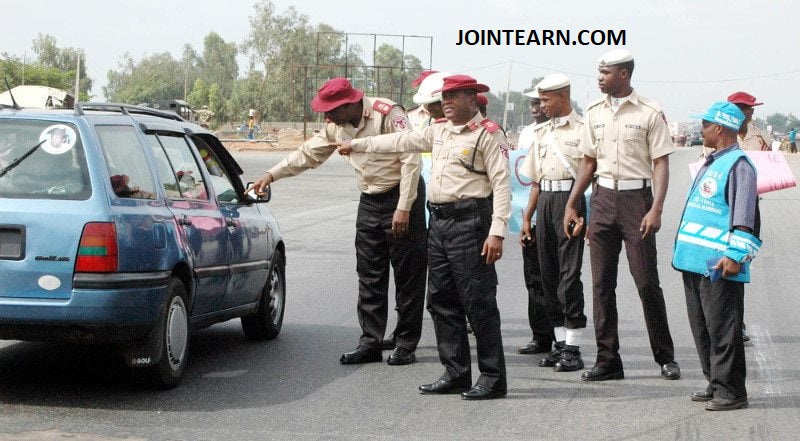In a significant ruling seen as a win for whistleblower protection and civil liberties in Nigeria, a Federal High Court sitting in Abuja has ordered the Federal Road Safety Corps (FRSC) and the Nigeria Police Force to immediately return a vehicle and mobile phone seized from a whistleblower after his public disclosure of alleged misconduct by security officers.
The whistleblower, identified as Mr. Femi Olatunji, had exposed a case of alleged extortion involving some FRSC officials and a police officer in December 2024. Following the revelations, which went viral on social media, Mr. Olatunji was reportedly detained and had his personal belongings confiscated.
The court, presided over by Justice R.A. Gwandu, condemned the actions of the security agents as unconstitutional, unlawful, and a violation of the fundamental rights of the applicant.
Legal Victory for Whistleblower Rights
Delivering judgment on Friday, Justice Gwandu ruled that the seizure of the whistleblower’s property without any formal charge or legal justification constituted a breach of his right to personal liberty and ownership of property, as enshrined in sections 35 and 44 of the Nigerian Constitution.
“The continued confiscation of the applicant’s vehicle and mobile phone by agents of the first and second respondents is unlawful, illegal, and an abuse of state power,” the judge ruled. “The court hereby orders the immediate return of all seized items to the applicant without further delay.”
Justice Gwandu also awarded damages in the sum of ₦2 million to Mr. Olatunji for the infringement of his rights, while strongly criticizing the actions of law enforcement agents in the matter.
Background: Whistleblower’s Exposé and Arrest
The matter began when Mr. Olatunji, a civil society volunteer and digital rights advocate, posted a video on social media alleging that he had been stopped by security officers on the Lagos-Ibadan expressway and asked to pay a bribe. In the footage, which gained widespread attention, Mr. Olatunji challenged the officers on camera and refused to comply with their demands.
Within days of the post gaining traction, he was reportedly arrested at his home in Abuja, and his Toyota Corolla and mobile phone were taken away during the operation.
According to court filings, Mr. Olatunji was held without a formal charge for 48 hours and later released on bail under the condition that he would “cease social media engagement” on the issue.
Human rights organizations, including Amnesty International Nigeria and the Socio-Economic Rights and Accountability Project (SERAP), condemned the arrest and called for accountability and respect for whistleblower protections.
Court Ruling Applauded by Civil Society
The judgment has been hailed by rights groups and legal practitioners as a reaffirmation of the Nigerian justice system’s role in protecting individual rights, especially in the face of abuse by state institutions.
Executive Director of SERAP, Kolawole Oluwadare, said the ruling sends a strong message to security institutions about the boundaries of their authority.
“This judgment is a watershed moment for whistleblower protection and the fight against corruption in Nigeria,” Oluwadare said. “No citizen should be punished for exposing wrongdoing. The court has rightly upheld the principle that state power must be exercised within the limits of the law.”
Similarly, the Human Rights Writers Association of Nigeria (HURIWA) praised the court for what it described as “restoring dignity to a young Nigerian who took a bold stand against corruption.”
FRSC, Police Yet to Respond
As of press time, neither the FRSC nor the Nigeria Police Force has released an official statement in response to the judgment. Efforts to reach their public relations departments were unsuccessful.
Legal observers say both agencies are expected to comply with the ruling or risk being held in contempt of court. Some have called for an internal investigation into the conduct of the officers involved in the whistleblower’s arrest and detention.
Call for Stronger Whistleblower Protection Laws
In the aftermath of the ruling, several civil society organizations have renewed calls for the National Assembly to pass a more robust whistleblower protection bill that guarantees immunity and legal safeguards for individuals who expose corruption or misconduct in public and private sectors.
According to legal expert Barr. Ruth Nwokedi, the absence of a comprehensive law often leaves whistleblowers vulnerable to retaliation.
“This case highlights the urgent need for legislative action. A dedicated Whistleblower Protection Act would institutionalize the safeguards needed for citizens to speak out without fear of reprisal,” she noted.
Looking Ahead
Mr. Olatunji, speaking through his counsel after the ruling, expressed gratitude to the court and reaffirmed his commitment to holding public officials accountable. He also urged fellow Nigerians not to be intimidated into silence.
“I did what I believed was right. This victory is not just mine—it is for every Nigerian who wants a better, corruption-free society,” he said.
The ruling is expected to further fuel advocacy for transparency, accountability, and citizens’ rights in Nigeria’s democratic journey.











